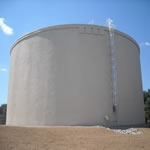DHHS → MeCDC → Environmental and Community Health → Drinking Water → Home
Information for . . .

Public Water Systems
Water utilities, mobile home parks, nursing homes, schools, factories, restaurants, campgrounds, etc.
Program Partners
Laboratories, training providers, federal and state agencies
Drinking Water Consumers
Public water system customers, private well owners and users
Drinking Water Professionals
Water operators, well drillers, engineers & consultants, oil tank installers, treatment providers, site evaluators, researchers
What's New?
- Capacity Development Learning Opportunity: From Surviving to Thriving
From Surviving to Thriving is a series of seminars for water utility operators that explores ways to increase their systems' technical, managerial, and financial capacity. Sessions will be held at locations around Maine between June and September, 2025. From Surviving to Thriving is co-hosted by the DWP and the Maine Public Utilities Commission (PUC), with support from the Maine Water Utilities Association (MWUA). Click here to learn more. - New Online Start-Up Procedures for Seasonal Public Water Systems
The DWP is pleased to introduce a new submission option for the State-approved seasonal start-up procedure (SSUP). Seasonal water systems, using either groundwater or surface water, can now submit their SSUP information completely online. Certify completion of your SSUP easily to the DWP saving paper, time, and money. The paper SSUP forms will still be accepted, but PWSs should be sure to use the 2025 revision from our website. Remember: Seasonal water systems must perform a State-approved startup procedure and provide certification to the DWP that they have met that requirement. Certification must be completed and sent to the DWP before serving water to the public. Click here to learn more or access the new online SSUP forms. - DWP Accepting Applications for 2025 Drinking Water Grants
The Drinking Water Program is accepting applications for the 2025 Source Protection Grant, Water System Asset Security Grant, and Capacity Development Grant. These grants are available to all Community and non-profit Non-Community public water systems. To learn more or apply, please visit the Financial Resources page of this website. - Lead & Copper Rule Revision – Lead Service Line Inventories
All Community and Non-transient, Non-community (NTNC) public water systems are required to develop and submit a comprehensive and accurate inventory of every service line in their distribution system, regardless of whether any lead is present. Initial inventories were due October 16, 2024.
Service Line Inventory Public Notices were due by November 15, 2024.
Click here to download Public Notice templates.
Click here for instructions on how to submit service line inventory Public Notice documentation to the DWP. - PWS Cybersecurity and Resilience
The Drinking Water Program believes that public water system adoption of cybersecurity best practices is critical to safeguarding drinking water supplies. DWP supports public water systems in taking action to enhance and maintain the digital security of Maine’s public drinking water infrastructure. For more information about DWP’s Cybersecurity Plan and program, please visit the Public Water System Cybersecurity and Resilience page of this website. - New Federal PFAS Standards
The National Primary Drinking Water Regulation (NPDWR) for six PFAS was announced by the EPA on April 10, 2024. Click here to learn more about the EPA standards. The interim Maine standard of 20 ppt for six PFAS compounds (alone or in combination) is still in effect as Maine reviews the new regulation and considers adopting rules that are at least as stringent. - Child Care Programs FREE Lead Water Testing Available
Testing for lead in child care drinking water is crucial in protecting children from the many negative effects of lead. To request your FREE lead testing kits and for more information, please visit the Testing for Lead in Child Care Drinking Water page of this website. - Public Water Systems can now view a report of all 2024 compliance samples received and processed to-date by the Drinking Water Program. The reports are updated every weekday. To view samples received for the 2023 compliance year, click here.
Updated 5/23/2025
About the Drinking Water Program
- Hours: Monday-Friday, 8am-5pm
- Phone: (207) 287-2070
TTY: Maine relay 711
Fax: (207) 287-4172
After‐Hours Emergencies:
(5pm‐8am M-F,
weekends and holidays)
(207) 557-4214
- Address:
286 Water St, 3rd Floor
11 State House Station
Augusta, ME 04333-0011
Driving Directions - Contact Us
Featured Pages
Public Water System Emergency Response Information



